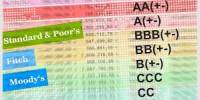Redeemable Shares are Such preference shares that can be claimed after a fixed period or after giving due notice. Redeemable preference shares are referred to as shares that can be redeemed or repaid after the fixed period as issued by the company or even before that. They are only redeemable as per the terms upon which the shares were issued. A redeemable preference share is good for the company. These act as a hedge against future inflation and when the monetary rate declines in the country. By these shares, the company gets rid of higher-paying coupon rate securities; in a way, increasing the shareholder’s value by redeeming preference shares.
Redeemable Preferences shares are those type of preference shares issued to shareholders which have a callable option embedded, meaning they can be redeemed later by the company. That means returning the preference share capital to the preference shareholders either at a fixed date or after a certain time period during the lifetime of the company provided the company must comply with certain conditions. For example, if the terms of the issue say the share is redeemable at the discretion of the company after 3 years of issuing, then a company can redeem the share at any point after 3 years.
The prices at which companies can repurchase these redeemable shares are already decided during the time of issuing those shares. Issuing callable preferential shares that can be redeemed in the future provides the company flexibility to choose from whether to go for share repurchase or go for shares redemption. Therefore the Companies Act has laid down manifold conditions for the redemption of preference shares.
Advantages –
- Issuing these shares provides the company with an option to choose between whether to repurchase shares or redeem shares depending on the market condition.
- The company redeems shares when it decides to pay back the shareholders. When shares are redeemed by the companies, the number of total shares outstanding reduces for the company, and the earning per share or the EPS of the company increases, which leads to the increase in the share price.
- By redeeming shares, the company, most of the time, gets rid of shares that were paying coupon rates, which are much higher than the current dividend yield for the equity share—thus increasing the value for the existing shareholders of the company.
Disadvantages
- These kinds of shares are feasible for the companies to redeem only when the call price of the shares is lower than the current market price of the shares. Otherwise, it’s logical for the company to go for share repurchases instead.
- The company needs to wait for the time predetermined while issuing the shares before being able to redeem the shares.
















